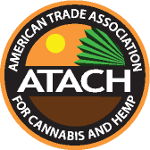1. Introductory Summary
Hawaii adopts a cautious regulatory approach to hemp intoxicants, specifically focusing on synthetic THC products like Delta-8 and Delta-10 THC. In response to the 2018 Farm Bill, Hawaii chose to establish restrictive measures for these products, balancing access with health and safety considerations. While not fully prohibited, synthetic THC products are closely monitored and subject to Hawaii’s stringent standards to manage potential risks.
2. Regulation of Synthetic THC Products
Hawaii permits the sale of synthetic THC products, including Delta-8 and Delta-10 THC, but under strict conditions. These regulations aim to control distribution and ensure that products meet state safety standards before reaching consumers.
3. THC Potency Limits
Hawaii enforces potency limits on synthetic THC products, capping THC per serving and per package to mitigate risks associated with high-THC products. These restrictions are applied uniformly across all synthetic THC products, with clear guidelines for manufacturers and retailers to follow. Specific per-serving and per-package limits align with the standard federal 0.3% THC limit rather than a mg-per-serving limit.
4. Public Health Measures
Public health measures in Hawaii for synthetic THC include age restrictions (21+), child-resistant packaging, and detailed labeling requirements. Packaging must clearly display warnings about intoxicating effects.
5. Taxation and Fees
Currently, synthetic THC products in Hawaii are subject to the standard retail sales tax, with no additional excise taxes specifically for hemp intoxicants.
6. Licensing Requirements
Hawaii requires businesses involved in the production or sale of synthetic THC products to obtain a state-issued license. This enables the state to enforce quality and safety standards effectively.
7. Testing Requirements
Hawaii mandates comprehensive testing for synthetic THC products, covering both potency and contaminant safety to ensure compliance with state standards. Licensed testing facilities verify that products meet potency limits and are free from harmful substances.
8. Packaging and Labeling Standards
Hawaii enforces strict packaging and labeling standards, including child-resistant packaging and clear THC content labels. Products must also include warnings about intoxicating effects and dosage instructions, reducing the risk of accidental ingestion and ensuring transparency for consumers.
9. Advertising and Marketing Restrictions
Hawaii restricts the advertising and marketing of synthetic THC products to prevent appeal to minors. Marketing restrictions ban misleading claims and limit exposure in youth-accessible venues.
10. Local Authority and Zoning Restrictions
Local jurisdictions in Hawaii are permitted to impose additional zoning restrictions on synthetic THC retailers, controlling business locations relative to schools, playgrounds, and other sensitive areas. This localized control allows communities to manage accessibility based on community-specific standards.
11. Product Recalls and Consumer Safety Provisions
Hawaii has established a recall system for synthetic THC products, enabling the rapid removal of non-compliant or unsafe items from the market.
12. Legal Challenges Related to Synthetic THC Regulation
Hawaii’s regulatory approach has not encountered significant legal challenges.
13. Impact on Medical Marijuana Program
Hawaii’s current synthetic THC regulations operate independently of its medical marijuana program.
